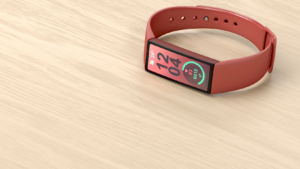In a world where technology is increasingly shaping our lives, it’s no surprise that it’s making waves in the health sector too.
Read on to discover how these high-tech tools are changing the face of healthcare, and how you might benefit from integrating them into your daily routine.
Health Tech Gadgets
The proliferation of health tech gadgets sees a surge as pinnacle of digital innovation meets healthcare.
Health tech gadgets encompass various digital and electronic devices, designed to monitor, analyze, and improve the user’s health. Examples of these sophisticated devices include fitness trackers, smart scales, glucose monitors, blood pressure monitors, etc. They primarily function to provide real-time insights into the user’s health indicators, supplying data that once remained exclusive to clinical laboratories.

The escalation in popularity of health tech gadgets owes to a conglomerate of reasons. The most prominent factor pivots around the accessibility and convenience these devices offer. Being compact, portable, and user-friendly, health tech gadgets deliver complex health information in a simplified way, thus breaking barriers between individuals and their health understanding.
Secondly, health consciousness is seeing a steep incline. Amid a global pandemic, people recognize the significance of proactive health management. They utilize health tech gadgets to gain a comprehensive grasp over their health data and, thus, make informed health decisions.
Thirdly, tech enthusiasts are continuously drawn towards these nifty devices, contributing greatly to the rise in popularity. This attraction is understandable, given the multifaceted functionality and sleek design these health tech gadgets portray.
Lastly, the advent of the Internet of Things (IoT) and mobile integration have further turned tables in favor of health tech gadgets. The interoperability of these devices with smartphones and other smart devices allows users to track, analyze and share their health statistics with ease—opening doors to a more connected and advanced healthcare system.
Key Categories of Health Tech Gadgets
In this era of increased health consciousness, two categories of health tech gadgets are dominating the scene: Wearable Fitness Trackers and Smart Health Monitoring Systems.

Wearable Fitness Trackers dominate the personal healthcare tech gadget division. These devices, as small as watches, are literally revolutionizing fitness regimens. Advanced fitness trackers now track not just steps, but they also monitor a user’s sleep patterns, heart rate, and stress levels, granting a new dimension to personal health monitoring. For example, brands like Fitbit, Garmin, and Apple offer a wide range of fitness trackers that cater to varying user needs and budgets. These trackers link seamlessly with mobile apps, providing an easy-to-understand analysis of health data, encouraging users to live a healthier lifestyle.
Smart Health Monitoring Systems

In parallel to wearable fitness trackers, another crucial category of health tech gadgets is the Smart Health Monitoring Systems. Often installed in homes or worn as body sensors, these systems collect data pertaining to different health parameters such as blood pressure, glucose levels and temperature, constantly assessing the user’s health condition.
Noteworthy examples in this category include the Withings Body+ – Smart Body Composition Wi-Fi Digital Scale, and the QardioArm Wireless Blood Pressure Monitor. By integrating with smartphones or other devices, these systems bring professional-level health monitoring to the comfort of one’s home. Suitable for people with chronic conditions or those needing continuous monitoring, they are particularly useful in today’s scenario of remote healthcare.
Digital Innovation Meets Healthcare.
The evolution of health tech gadgets is undeniably transforming the landscape of healthcare. From fitness trackers to smart scales, these devices are bridging the gap between clinical settings and personalized health monitoring. They’re not without challenges though. Privacy, security, and data accuracy concerns are significant hurdles that need to be addressed.
The future of these gadgets is promising, with advancements in IoT, blockchain, and AI expected to drive innovation. The integration of these technologies will enable the creation of a personalized health ecosystem, manage privacy and security issues, and handle vast volumes of health data efficiently.

